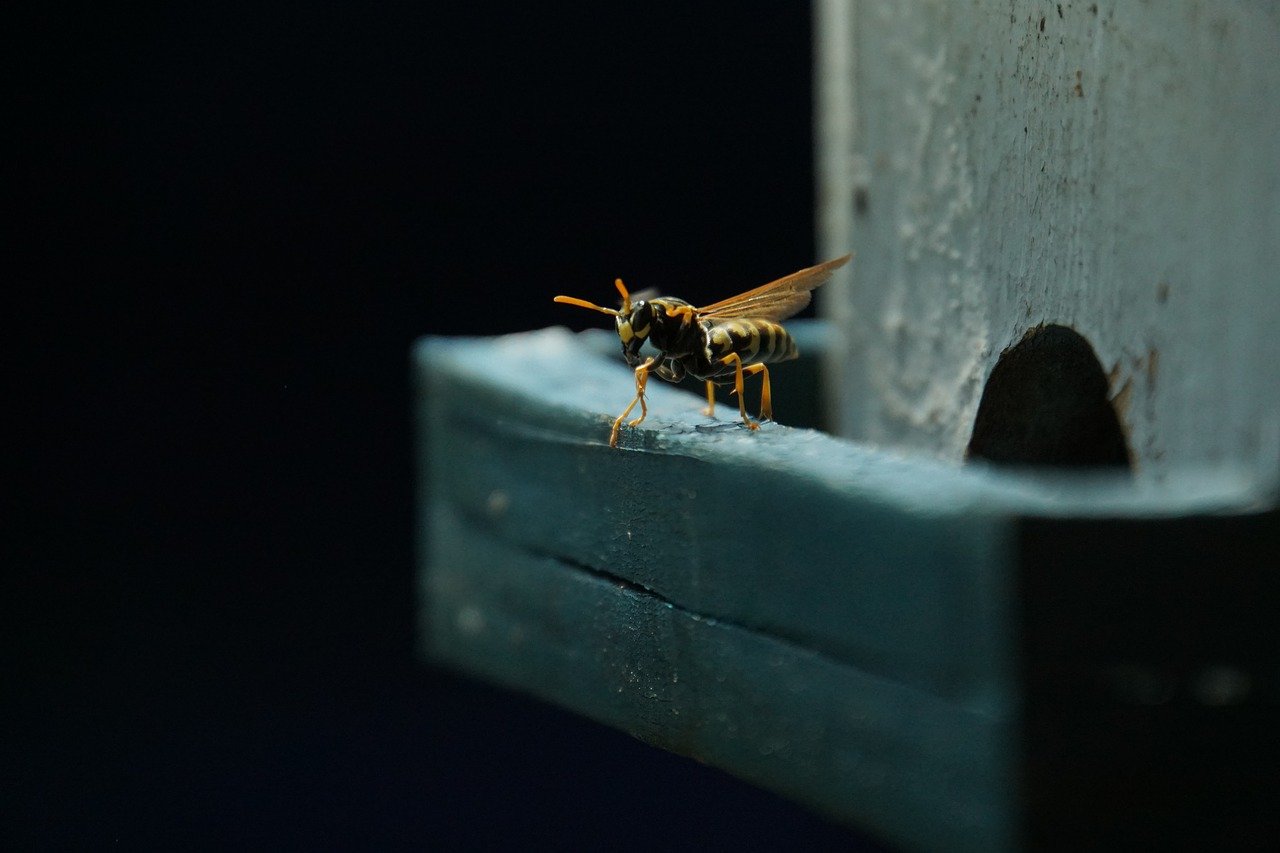
With its beautiful climate all year round, wasps are always a problem in Texas. These pests are more annoying than others because they deliver a sting that is very painful. Wasps can also sting repeatedly and when they do, it could even result in a rare but potentially fatal condition known as rhabdomyolysis. It is for this reason that all Texans should know the effective wasp control methods that work. Below, our wasp control expert explains the necessary steps.
Never Remove a Nest on Your Own
There are many do-it-yourself tutorials online that explain how to remove a wasp nest. Most of these sites say that it is safe to do so, but it never is. Removing a wasp nest is especially difficult and if it is not done properly, you will be at serious risk of being stung repeatedly. Due to the fact that the wasps will feel threatened, they will become even more aggressive. The only way to safely remove a wasp nest is to call a professional wasp control service that has the necessary experience to do it.
Get a Professional Inspection
All professional pest control services start with a full inspection of your property. It is a common misconception that wasps only build hanging nests. Although hanging nests are most commonly used by wasps, they have also been known to create nests in the ground, as well. A professional wasp control service will know to look for these and to inspect other areas in which wasps may build a nest. These usually include crawl spaces, cracks, and other areas where wasps will feel protected.
Destroying the Wasp Nest
Once all of the nests on the property have been found, a professional will treat them with a chemical spray. The spray will kill the wasps inside the nest quickly so the nest can be removed. Although there are sprays and other products available on the market that people can use to do this themselves, it is again never recommended. A pest control professional will always use their products according to the manufacturer’s directions, and will also know how to use the solution safely so you and your family are not harmed by it.
Applying Additional Treatments
Not all wasps are inside of the nest at the time the pest control solution is sprayed. The wasps that are left in the yard will just find a new spot to create a nest, meaning your problem will very likely come back in the near future. To kill these wasps before they have a chance to return, a wasp control specialist at Stride Pest Control will use quick knock-down sprays or dusts. They will also occasionally recommend a customer pick up a wasp bait station over the counter and maintain it themselves.
Yearly or Seasonal Treatments
If you have a particularly bad wasp problem, a pest control specialist may recommend a yearly or seasonal treatment. This treatment may include installing bait stations, treating nests any time they appear, and regular protection against aggressive insects.
Prevention is Key to Wasp Control
Even if you receive regular wasp treatments in your yard, the actions you take may inadvertently be inviting wasps into your outdoor space. To prevent a problem from forming, there are some important prevention tips you can take. These are as follows:
- Remove all food from the yard: You may think you are very vigilant about cleaning up after a backyard barbecue but may be missing other food items in the yard that are attracting wasps. These can include fruit that falls to the ground after growing in the garden, bird food, and compost piles. You do not have to entirely remove these to control wasps, but do take caution with them. Harvest any food as soon as it is ready, and make sure to pick up any fallen fruit. Cover compost piles tightly and hang bird feeders far from the house.
- Seal windows and doors: Perhaps the only worst thing than having a wasp problem in your yard is having one in your home. Use caulk to seal any gaps or cracks in the windows and doors, keeping in mind that wasps can fit their bodies through the smallest of spaces.
- Know what to plant: Although it may not be able to keep wasps out of your yard entirely, planting wasp-deterrent plants outside can act as a good deterrent. Wasps especially dislike wormwood, marigold, pennyroyal, basil, mint, and geraniums.
- Inspect your property: Even if you are receiving regular wasp control treatments, it is still important to inspect your property regularly. Check sheds, garages, and wall cavities that may make a good spot for a wasp nest so you can contact a wasp control service as soon as possible if you find one.
- Use peppermint oil: Wasps also hate peppermint oil. If you have seen wasp activity outside, spray the exterior with peppermint oil to keep wasps at bay. Again, this will not entirely eliminate the wasps, and they may simply move to another location. However, it can help keep the areas you enjoy using most, such as your deck, wasp-free.
- Fill in holes: If you have holes in your grass or areas in your cement, it is important to fill these in. Wasps can use these if they feel threatened and need protection and may surprise you with their powerful sting if you walk in these areas.
Our Wasp Control Experts in Texas Can Help with Your Problem
At Stride Pest Control, our Austin and San Antonio wasp control experts help people get rid of wasps on their property every day. We can put our expertise to work for you, too. We know the safe and effective solutions to use for wasp problems and will recommend the solution that is right for you. Call us now at (512) 777-1339 or (210) 547-8410. You can also fill out our online form to schedule a free consultation and to learn more about how we can help get rid of your problem once and for all.

